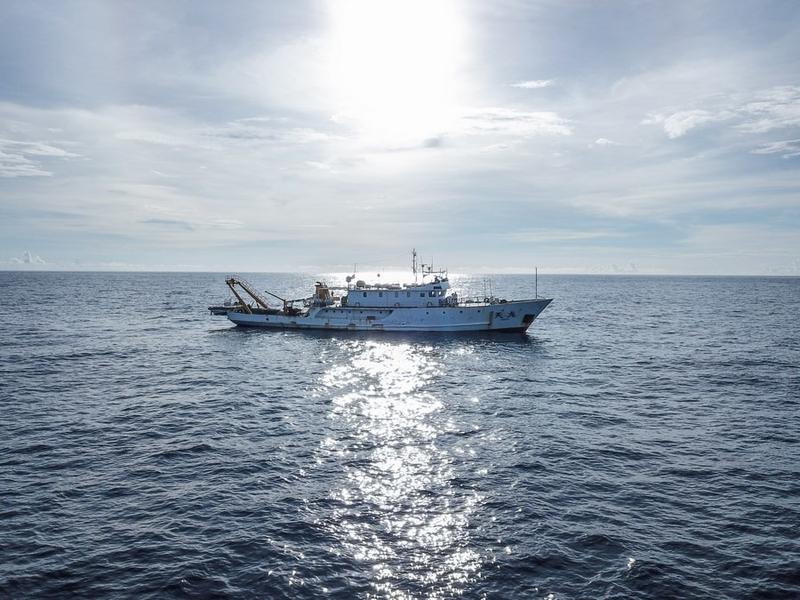 This aerial photo taken on July 13, 2020 shows an expedition vessel in the South China Sea. (PHOTO / XINHUA)
This aerial photo taken on July 13, 2020 shows an expedition vessel in the South China Sea. (PHOTO / XINHUA)
China reiterated its grave concern on Tuesday over the collision of a United States Navy submarine with an unknown object in the South China Sea, and urged Washington to release more information about the incident and stop the militarization of the area.
It has been more than three weeks since the USS Connecticut, a Seawolf-class nuclear attack submarine, had an underwater collision in the South China Sea, yet Washington has remained tight-lipped about the incident.
The US has frequently sent a large number of military vessels and aircraft to the South China Sea to flex its muscles, which undermined freedom of navigation in the area and threatened the sovereignty and security of regional countries including China, said Foreign Ministry spokesman Zhao Lijian
US military website The Drive said it had confirmed that the USS Connecticut is still in port in Guam.
China has repeatedly demanded the US make clarifications about the incident, Foreign Ministry spokesman Zhao Lijian told a daily news conference.
ALSO READ: China says military development poses no threat to any country
However, Zhao added, the US military has so far only procrastinated by releasing a brief and vague statement.
"Such an irresponsible practice gives regional countries and the international community every reason to question the truth of the incident and the intention of the US," he said.
"It is justified for China and other coastal states to demand the US to answer the following question: What was the USS Connecticut up to in the South China Sea this time? What did it hit? Why would that happen? Was there a nuclear leak with environmental risks?"
The US should give a detailed explanation in response to the concerns and doubts of the regional countries and the international community, Zhao said.
The US has frequently sent a large number of military vessels and aircraft to the South China Sea to flex its muscles, which undermined freedom of navigation in the area and threatened the sovereignty and security of regional countries including China, Zhao said.
Such practices also posed serious threats to regional peace and stability, Zhao said, stressing that the South China Sea is not a hunting ground for the US to pursue its geopolitical interests.
READ MORE: US Navy's South China Sea passing criticized
Washington is the major force in the militarization of the South China Sea, he said, urging the US to correct its mistakes and play a constructive role in upholding peace and stability in the area.


